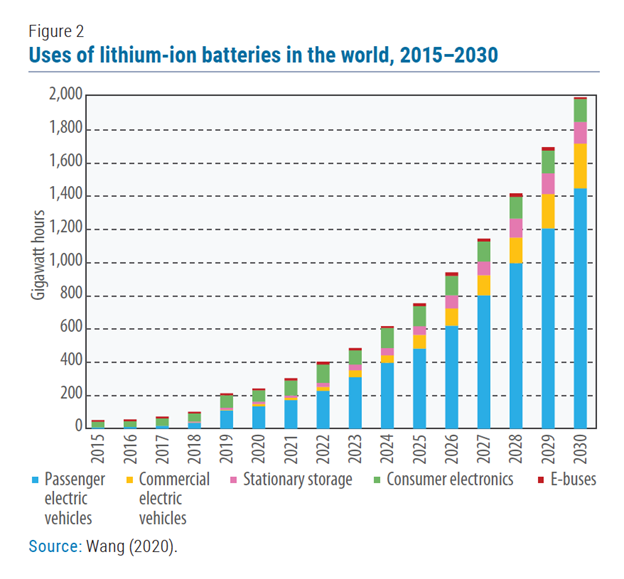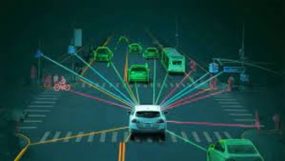The Future of Electric Vehicles and Artificial Intelligence: The Effect on Economies
Written by: Vincenzo Testa, CPA, CFP®
The shift from gas-powered vehicles to electric vehicles will be a revolutionary change in the world of transportation. We can compare this change to when we went from “horse and buggies” to the Ford Model T. The infrastructure needed to make this shift will create hundreds of thousands of jobs and require millions of dollars for the change to be implemented efficiently and effectively. This will obviously create growth in the US economy and in turn result in growth in the US equity markets. As a firm, we are constantly looking at trends that will drive performance over the long term. We believe these two trends will be impactful for portfolios and the economy.
The integration of artificial intelligence into electric vehicles will also create growth in other ways – efficiency. Artificial intelligence will allow all vehicles to be autonomous one day. This will increase profit margins for companies that are in the business of shipping goods, and it will also allow companies to ship goods in a faster manner – creating higher profitability for US companies. The development of electric vehicles and the integration of artificial intelligence will create significant growth in the US economy.
Electric Vehicles - A Clean and Sustainable Future
The growing concerns over climate change and the need to reduce greenhouse gas emissions have propelled the popularity of electric vehicles. Electric cars are powered by electricity, which is cleaner than fossil fuels, and they have the potential to reduce air pollution, improve air quality, and lower carbon emissions. The demand for EVs is expected to continue to grow as countries around the world set ambitious targets to reduce carbon emissions and switch to electric transportation.
The cost of batteries, which has been a barrier to the adoption of EVs has been steadily decreasing, and many auto manufacturers are investing in the development of new battery technologies that will increase range, reduce charging times, and lower costs. The shift towards electric transportation has also given rise to new business models, such as battery swapping and electric vehicle charging infrastructure, that will help to accelerate the adoption of EVs. The below chart shows battery usage around the globe.

Artificial Intelligence - Driving the Future of Autonomous Cars
 Artificial intelligence has and will change the game in the automotive industry. AI-powered systems can be used to improve safety, increase efficiency, and enhance the driving experience. Autonomous cars, which are vehicles that can drive themselves without human intervention, are an area where AI is being heavily invested.
Artificial intelligence has and will change the game in the automotive industry. AI-powered systems can be used to improve safety, increase efficiency, and enhance the driving experience. Autonomous cars, which are vehicles that can drive themselves without human intervention, are an area where AI is being heavily invested.
The development of autonomous vehicles requires an immense amount of data processing and analysis, which is where AI comes in. AI algorithms are used to process data from sensors and cameras and make decisions based on that information. AI-powered systems can analyze data in real time, helping to detect and respond to changes in traffic, weather conditions, and road infrastructure. They can also help to prevent accidents by identifying potential hazards and alerting drivers.
AI is also being used to enhance the in-car experience for passengers. Voice assistants, such as Amazon's Alexa or Apple's Siri, can provide a hands-free interface for controlling various aspects of the car, from climate control to entertainment. AI-powered systems can also learn a driver's habits and preferences, providing a personalized experience that is tailored to the individual.
The Future of EVs and AI
The integration of electric vehicles and artificial intelligence is driving the future of transportation. The adoption of EVs will continue to grow as battery technology improves, and charging infrastructure expands. AI-powered autonomous cars will become more prevalent on our roads, improving safety, reducing congestion, and providing a more efficient mode of transportation.
In conclusion, the future of electric vehicles and artificial intelligence is exciting and full of the utmost potential. These technologies are poised to revolutionize the way we think about transportation, making it cleaner, safer, and more efficient. As we move towards a more sustainable future in this space, the integration of EVs and AI will play a critical role in achieving efficiency and lowering costs to the consumer. With the combination of the infrastructure required to ensure electric vehicles are the default vehicle to the US consumer as well as the efficiencies they will create related to company profitability – the US economy can expect to see stable growth over the next 10-20 years.
Bouchey Financial Group has offices in Saratoga Springs and Historic Downtown Troy, NY, and Boston, MA.
Sources:
- Chart: EV Market Revenue Set To Hit $384 Billion in 2022 | Statista
- Frontier Technology Issues: Lithium-ion batteries: a pillar for a fossil fuel-free economy? | Department of Economic and Social Affairs (un.org)
- Research in Autonomous Driving – A Historic Bibliometric View of the Research Development in Autonomous Driving - Research leap